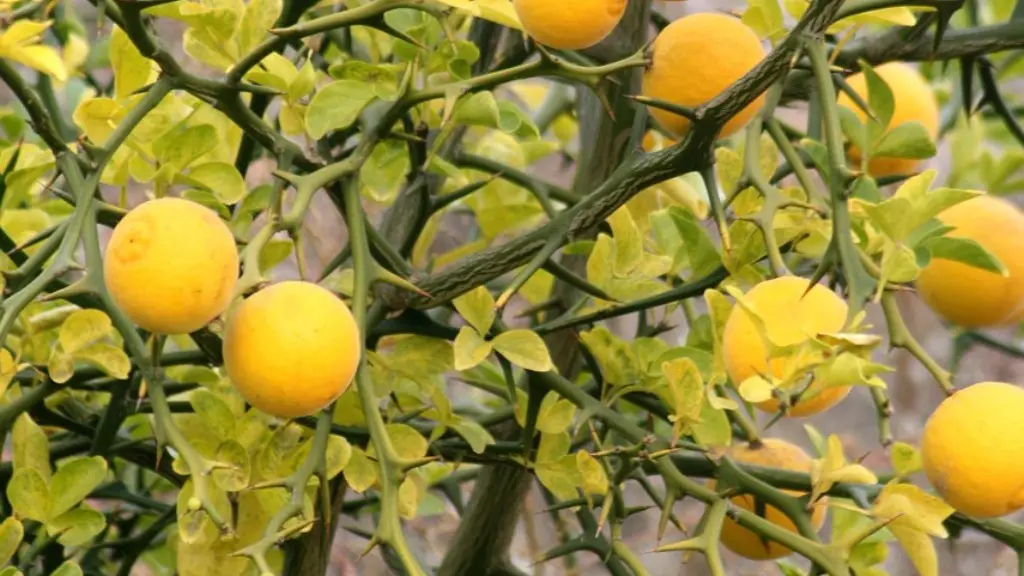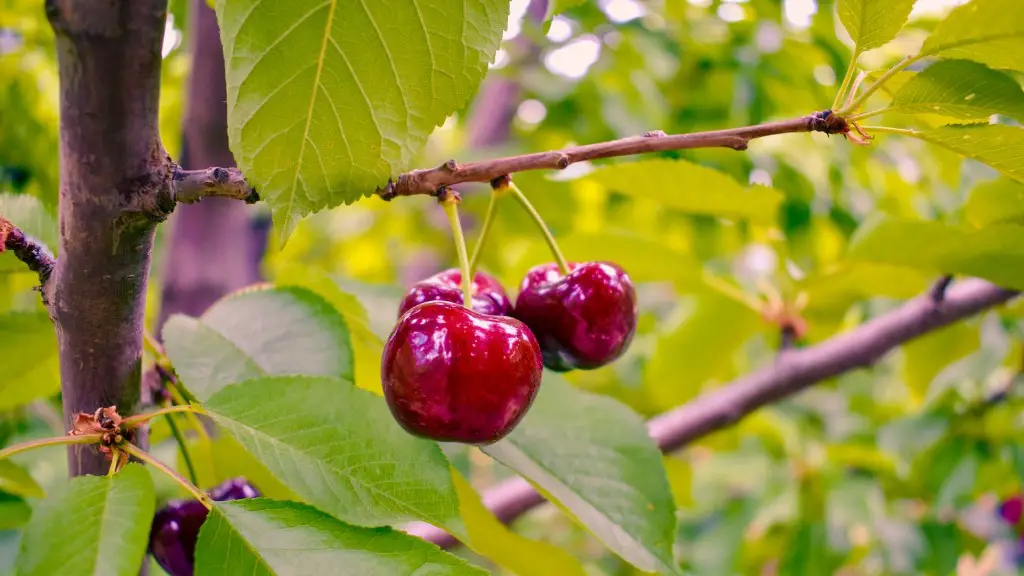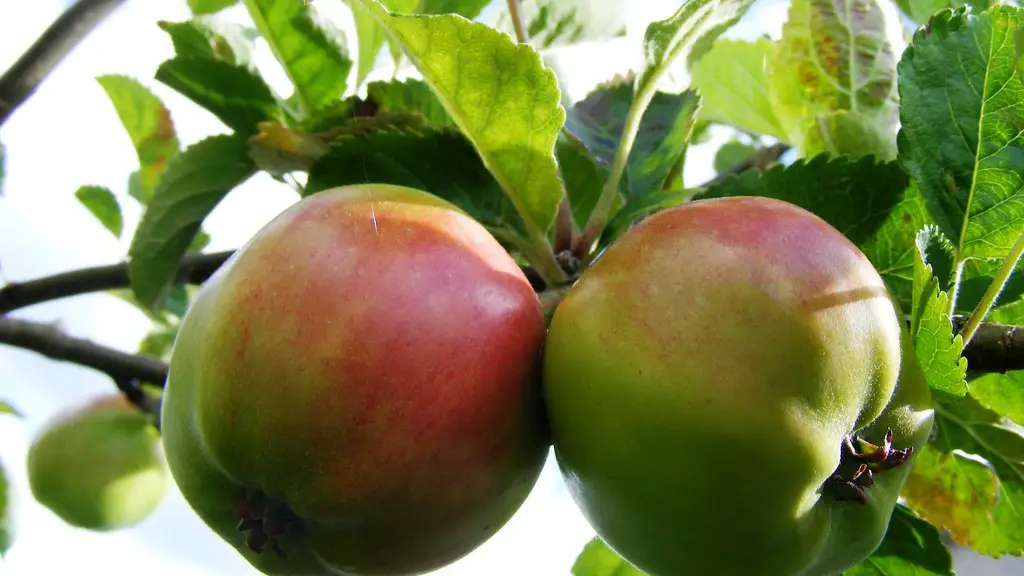Having a lemon tree in your garden is a great way to bring a touch of the Mediterranean to your home, as well as providing you easy access to lemons. But how do you know if your lemon tree is going to fruit or not? To answer this question, here are a few simple tips.
First of all, you need to make sure your lemon tree is healthy and well fed. Lemon trees will usually only produce fruit if they’re provided with plenty of water and fertilizer. Make sure you’re giving your lemon tree the right amount of nutrients, and that it’s getting enough light to keep it in good condition.
You should also check the size of your lemon tree. Smaller lemon trees, or those that have not been in the ground for very long, are less likely to flower and fruit. So if your lemon tree is still quite small, it may still be a few years before it’s mature enough to produce lemons.
Another thing to check is the age of your lemon tree. A lemon tree that’s more than five years old is more likely to produce fruit than one that’s still in its infancy. So if you’ve had your lemon tree for a few years, it’s a good sign that it’s ready to start bearing fruit.
Finally, you should also check the climate in which your lemon tree is growing. This is very important, as lemon trees need warm temperatures to flower and fruit – temperatures below 10 degrees may put the plant into dormancy. So if you live in a cooler climate, it may be worth planting your lemon tree in a sheltered location so it gets enough warmth to produce fruit.
When Should I Expect My Lemon Tree To Fruit?
Once you’ve made sure that your lemon tree is healthy, getting enough light and nutrients, and is growing in the right conditions, you can start to expect it to flower and fruit. Depending on the variety of lemon tree and the climate, it can take anywhere from one to three years for the tree to start producing fruit.
In the meantime, you can encourage your lemon tree to fruit by pruning it to a manageable size. Pruning lemon trees helps to encourage higher concentrations of flowers and fruit, as there’s less competition for nutrients between all the branches.
If you’re patient, you should be able to start harvesting lemons from your lemon tree after a few years. Just remember to keep it well nourished, pruned, and in the right climate and you’ll be enjoying the delicious fruits of your labour soon.
What To Do If Your Lemon Tree Is Not Fruiting?
If after a few years your lemon tree is still not fruiting, then it’s time to start troubleshooting. Check the tree for signs of disease or insect infestations, as these can impair its ability to flower and fruit.
If there are no signs of disease, then you may need to take a closer look at the environment in which your lemon tree is growing. Make sure you’re giving it the right amount of light and nutrients, and that the temperature is appropriate. You may also want to consider transplanting your lemon tree to a more suitable location if necessary.
Be sure to pick up on any other signs that your lemon tree is not healthy, such as discoloured leaves, wilting, or stunted growth. All of these could be indicators that something isn’t quite right, so you should give your lemon tree more attention and get it the help it needs.
Can I Force My Lemon Tree To Fruit?
It is possible to stimulate your lemon tree to fruit earlier by using a number of techniques. One such technique is called ‘forcing’, which involves carefully removing some of the buds from the tree during the summer months. This encourages the remaining buds to form larger and more abundant fruits.
Another technique is ‘pinching’, which involves trimming the ends of the new branches to encourage more flowers and fruit. If the tree is looking a bit bushy, trimming it can also help to open up the branches and let in more sunlight, which helps flowering and fruiting.
It’s important to remember, however, that these techniques are not a guarantee that your lemon tree will fruit. The tree still needs to be healthy and in the right environment before it can flower and fruit. If the tree doesn’t start fruiting after you’ve tried these techniques, then the problem may be something more serious.
Where Do Lemons Come From?
Lemons are a type of citrus fruit that originated from SE Asia. It’s thought that citrus plants first existed in the Himalayas, with lemons later spreading throughout India and other parts of the continent. It was then brought to the Mediterranean region by the Arabs during the Middle Ages.
From the Mediterranean, lemons then spread to other parts of Europe and eventually the New World. Lemons are now widely cultivated across the World, in places such as Africa, Australia, and the Americas. They’re also popularly used in cooking, with their acidic flavour adding a fresh and tart taste to meals.
But of course, the best place to get your lemons is directly from your own garden. Just make sure your lemon tree is healthy, in the right environment, and well fertilised and watered, and you’ll soon be able to enjoy homegrown lemons that are ripe for the picking.
How To Harvest and Store Lemons?
Harvesting your lemons is an easy process, but you should still be careful to make sure you don’t hurt the tree in any way. A good rule of thumb is to pick the lemons when they’re still slightly green and firm, rather than when they’re fully ripe and yellow. This ensures that the lemons will last longer as they will ripen later and won’t spoil as quickly.
Once you’ve harvested the lemons, you can store them in a number of ways. Fresh-cut lemons will last up to two weeks if stored at room temperature, or up to four weeks in the refrigerator. You can also freeze lemons for longer-term storage, although be aware that they will lose some of their freshness and flavour.
You can also dry lemons and make lemon powder, or make lemon juice or concentrate out of them. This way, you can enjoy your lemons all year round and get the most out of your fruit tree.
What Are The Benefits of Eating Lemons?
In addition to being delicious and versatile, lemons have several health benefits. They’re high in vitamin C, which can help to boost your immune system and protect against infections. Lemons are also high in antioxidants, which can help to reduce inflammation and protect against chronic diseases.
The citric acid in lemons is also beneficial for digestion, as it helps to break down food and stimulate digestive juices. Plus, the vitamin C and flavonoids in lemons can help to reduce inflammation in the gut. And lastly, lemons are high in fiber, which keeps your digestive system running smoothly and prevents constipation.
Overall, lemons are a nutritional powerhouse that should definitely be a part of your diet. So if you have a lemon tree in your garden, then it’s time to start thinking about how you can make the most of your homegrown lemons.




